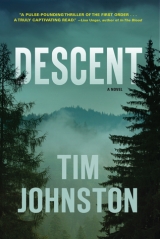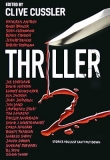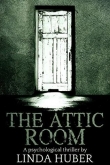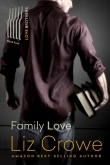
Текст книги "Descent"
Автор книги: Tim Johnston
Жанр:
Триллеры
сообщить о нарушении
Текущая страница: 3 (всего у книги 25 страниц)
4
The moment she walked into the classroom she knew she’d made a mistake, but some of them had already seen her and it was too late. Rebecca Woods whose mother, Anne, liked a good martini in the afternoon; Ariel Suskind with her tremendous brown eyes and a father who taught graduates at the university and who had left Ariel’s mother for one of them. Angela had a brief smile for these daughters of friends and once friends, and they had the same for her before the girls were moved to urgent doodling, to matters of the cell phone. She saw the flushing young cheek. The spill of fine hair which must be rehung behind the ear. Girls of high bloom and maturity enough to know wreckage when it stood before them but not to bear it, and in that instant she abandoned every plan she’d made and asked them to open their books please and just read, and this they did without a whisper or passed note or pen poke among them. Instead there was the mute fervency of secreted devices, messages firing lap to lap like cells along a nerve chain, and she sat out the hour staring into the paperback and letting them take her in as the news reached them one by one: She lost her daughter in the Rocky Mountains, then she lost her mind; she was in the “hospital” for three months & now she’s our sub? Is that even like, legal? Yes, children, here is your lesson, here is all I can teach you, until the bell sounded at last and she stood and pretended to search the contents of her tote bag while they shouldered their packs and trooped wordlessly out and—
“Good-bye, Mrs. Courtland.”
“Oh, good-bye, Ariel. Please tell your mother hello.”
“I will.” The girl slowing, not quite stopping, books held to her chest, the great brown eyes. She had an older sister with the same eyes who had run track with Caitlin but who’d broken her neck diving into a pool and lived now in her wheelchair, and Angela digging intently at the tote bag, muttering, a glance and a smile—“Bye now”—and the girl Ariel nodding and turning and going on, and Angela’s heart racing high in her chest as she shut the door and shook out a palmful of pills and then spilled them back into the vial, all but two, and clapped them into her mouth and swallowed them dry. When she opened the door again some minutes later the hall stood empty left and right. She stepped out and walked it with the rap of her heels bouncing off the tin lockers like the footfall of some following soul. Like the twin sister who still spoke to her, whom she saw in the mirror. Two old dears alone in that church-quiet corridor, they might have been, childless where a thousand living children ran.
How do you go on?
You just do, honey.
The clack-clack of heels. The gray rectangles of doorlight ahead.
Why?
Because He asks you to. And for your family.
She pushed through the doors and there was the smell of rain and she sat on the wooden bench and slipped off one heel and pulled the white sock onto her foot, the white sneaker after, and then she did the same for the other foot and tied the laces. She lifted her face to the sky and shut her eyes against the first cold drops. Your family. She tried to think. She tried to remember what that meant. How you were supposed to feel. Above her, the flag lapped silkily upon itself, susurrant as some creek or stream making its way across the sky. The drops fell harder. Colder. She pulled the black umbrella from her tote bag and thumbed the button and the device shot forward and flapped into tautness over its bat-wing joints. She felt the pills under her heart like a hundred small hands holding it aloft.
At home—at Grace’s—her little sister, who did not work on Mondays, was putting the kitchen back in order. She was getting dressed, she was brewing fresh coffee and reading the paper, she was listening to that clock. She was waiting for Angela to walk in the door and tell her how it went. She was waiting to talk. Grace had no memories of another sister, of Faith. To her there was Angela, and there was this girl who looked exactly like Angela in the old albums—identical pretty young girls smiling, dazzling the camera, no way to tell which was the girl who would live and which the one who would not.
Angie.
Yes.
We can’t just sit here.
I know.
She sat a moment longer beneath the umbrella, inside the dark bell of it, listening to the drops drumming. Then she stood and walked away from the school, and away from Grace’s.
5
Two days of heavy snow before the pass opened again and they could go. Unbelievably bright and crystalline Saturday morning, the little resort town gilded end to end in a deep wonderland sugar. Skiers racking their skis on a shuttle bus outside the motel and clomping aboard in splendid plastic boots. A foursome of boys jostling up the walk waving snowboards—Hold the bus!—eighteen, nineteen, careless as lords.
It was the day before Th anksgiving. Th ey had lived in the motel for four months. Family of four when they checked in, family of three checking out.
Everybody in? Grant said unthinkingly.
Th ey were the only car going upward against a long, down-snaking procession of inbound traffic, as if they alone defied the laws of the divide, of physics. Th e whitened pine forests rolling by like a child’s dream of winter (if anything moved, if anything stirred in all that whiteness the eye would see it at once, seize on it—but nothing did), and they wound their way up one side of the divide and down the other without a word among them, slipping at last into a vein of freeway that carried them through the city toward the plains to the east, the great peaks rising behind them, more massive somehow with distance, undiminishing, the car doing seventy but dragging, straining, the sensation of a climbing ride that would reach its vertical limit, falter, and plummet backward. As it must. As it should.
Th ey drove on, away from her, mile by mile.
In the back the boy had his homework, the things the school had sent, arranged on his lap, his naked leg pillowed along the length of the seat, the entire length of it, no other way for him to be in the car, so where would she have sat?
East of the city nothing but the road ahead and the wintered plains and the blue sky. Th ey drove over a ruddy stain where an animal had been struck, and Angela reset her sunglasses. Deeper into the plains dark rags of meat and hide littered the road. Black hooves in the ditch like strange blossoms. Th ey came upon a fully intact animal in the median, a newly antlered buck on folded legs, no blood but no life either in the eye that watched them pass. Oh God, said
Angela, and Grant said, Don’t look.
How can I not look?
Watch the horizon. Close your eyes.
Th at doesn’t help.
What do you want me to do?
Th ere was the rattle of pills and her head kicked back once and then again as she drank from her water bottle. If she looked over her shoulder all she would see of the boy was his leg. Th e lurid seams. Th e gleaming steel brace clinging to his knee and holding the pieces together under the skin. A thing from the future that from time to random time probed with its needle legs raw, deep beds of nerves. Since they’d gotten into the car she hadn’t looked back, not once. As if her head no longer moved that way.
Grant tabulated through the stations and switched off the radio. How you doing back there? In one of his pockets were Sean’s pills.
Fine.
Th e leg okay?
Th e boy looked at his leg. Th e steel arachnid.
Are there any rest stops in this state?
When they stopped, Angela’s head, lolled against the window, did not stir. Grant pulled the collapsed wheelchair from the rear of the wagon and after a few minutes the boy was in it and they were pushing into a bitter wind, his bare leg pink and white in the cold.
No warmer inside the men’s room but at least windless, the wind whistling around the glass blocks where the caulking had pulled away. A large man in a checkerboard winter vest glanced at them and turned back to his loud pissing. Sean wheeled himself to the handicap stall and Grant said, Will you be all right? and Sean didn’t answer, his heart rising furiously. At school was a bathroom with a blue wheelchair sign on the door and the door would swing open when you came near it with a certain kind of card, and the only people who had the card were the janitors and a boy in his class with MS and an older girl, a friend of Caitlin’s who’d broken her neck diving into a swimming pool. And now Sean would have the card too and he would go into the cripple’s bathroom and sit like a girl when he pissed.
Some minutes later he wheeled out of the men’s room and steered toward the glass doors of the lobby and stopped. Out in the car, his mother’s head rested as before. Sunglasses like black outsized eyes, blind and unblinking. To the west was nothing, the mountains gone, absolutely, as if into a sea. Th ey were the survivors; all they had now was each other. Like in a book, or a movie.
Want something from these machines?
He wheeled around.
Th ey’ve got Snickers bars. Coke, his father said.
Sean stared at the machines. I’m not supposed to eat that crap.
You can eat whatever you want.
Why?
Because you can, that’s all.
Because I’m in this thing?
Because you’re sixteen, Sean.
Th ey were silent. Wind pushed at the glass doors, rattling them like a man locked out.
What is it? his father said.
Nothing.
What, Sean?
Is she going to be all right?
His father stared at him, his eyes glassing over, and Sean said, I mean Mom, and his father looked out at the car.
She’s going to need time. And help. She’s going to need your help.
And yours too.
Yes.
But you’re going back. To keep looking.
Yes.
I’m going with you.
You need to get back to school, Sean. And you need to heal that leg.
Th ey were not on the highway long before his knee took up an intense
pulsing—rhythmic flashes of pain he thought he ought to be able to see like light in the eyelets of flesh where the spiderlegs sunk in. A quasar of bone and nerves throbbing under the zippered skin. He stared at his knee and he remembered the ground up there. Th e brown bed of needles, the weeds and the dust. Lying there looking up into the trees with the feeling of piss in his crotch. Hot piss in his crotch and a leg all wrong and his heart pounding and still seeing the man’s face behind the wheel, no surprise no fear no nothing, just the yellow lenses, and
he’d closed his eyes when the man came up—Don’t touch him, she said—and he’d kept them closed like he was sleeping as they put the man’s blanket that smelled of wool and gasoline over him and he kept them closed as she knelt and talked to him one last time, and he kept them closed and he kept them closed with the piss going cold in his crotch.
How’s the leg? his father said. As if the pain were visible after all, burning like headlights in his mirror.
Fine, he answered.
6
Angela walked.
She walked and her mouth was dry and there was the supermarket sign across the street like a bloodstain in the gray, side-blown rain. The trees were lashing themselves. The umbrella filled with wind and lifted, brute and purposeful. When the little walking figure lit up she stepped into the crosswalk and a man said Shit and she stopped just short of the collision—bike and bicyclist skidding by quarter-wise to the road, tires locked, rainwater fanning, a wet grimace of face under the helmet and then the wheels unlocking and the bike righting and the man glancing over his shoulder not to see if she was all right but to tender his disbelief, his fury, before facing forward again and pedaling on through the rain.
She crossed the road, crossed the parking lot, and the glass door swung open and she stepped into the supermarket’s vast fluorescence, thinking of the winter day she’d first seen him on that bike, that three-speed from another century, himself an unlikely figure in army surplus trench coat and canvas haversack, like some courier of the tundra. Grant Courtland, someone told her. Pulling up next to her another day at a crosswalk and turning to her and waiting for her to look. Waiting. And when she looked at last she saw first the redness of his face, the bright blooms of cold on his cheeks, blooms of some essential enthusiasm, and next the eyes, stung-wet and very blue, and lastly the lips as he smiled and said, You look nice today. And rode on.
In her apartment over the Polish bakery he would read to her, fragments of which she could still recite: Homeless near a thousand homes I stood, and O! speak again, bright angel-a, and I’ll example you with thievery. Years later he couldn’t believe she remembered the lines when he himself did not.
Such days, such nights. Such heat in the dead of winter! How could it ever end?
Th e sun’s a thief. . . . Th e sea’s a thief.
Can you recite too what the father said that day? said Faith.
Yes: God does not ask His children to bear that which they cannot.
Right.
But neither does He permit them to not bear it. Therefore He asks His children to bear the unbearable.
He knows you have strength you don’t know you have.
“Excuse me.” A woman was reaching past her for a bottle of water. Angela said, “I’m sorry,” and moved aside.
Angela stared at the bottles. So many choices. She selected one and studied its list of ingredients: water. A little boy of perhaps five was standing beside her. She looked down at him and he looked up. Brimming blue eyes and teartracks on his cheeks.
“Where’s your mother?”
He shook his head.
Angela looked around.
“All right. Don’t worry. Come on.” She turned and walked and the boy followed. After a moment he took hold of her skirt. As they passed the long produce bin the indoor thunder sounded and a fine mist fell from unseen jets, dewing up the bright tomatoes, the perfect heads of lettuce. The thunder is to warn you, Sean said, ten years old, so you don’t get sprayed. Caitlin said, Oh, really? and stepped forward with her summer arms.
“Bradley!” came the cry. A quick breathy commotion bearing down from behind. “Where are you going?” Wild, puffy eyes and all the goods her arms could carry as she groped for the boy’s hand. “Where are you going with
my son?”
“Nowhere,” Angela said. “We were going up front to—”
“You just walk off with someone’s child in a grocery store?”
Angela looked at the woman. Then she looked at the boy, his face buried now in the woman’s thighs.
“He looked like a very nice boy,” Angela said, and the woman’s mouth convulsed mutely. She dropped a bag of cornchips and let it lie there so that she might palm the boy’s head and lead him away.
Angela paid for her water and walked outside. Still raining, though the wind had moved on. The little trees of the parking lot seemed to be collecting themselves, checking for damage. Under a concrete shelter sat a number of iron tables with a number of people using them: supermarket employees on smoke break, businesswomen stabbing at salads. Was it lunchtime already? One old man writing in his notebook. She stood across from the old man and asked if she could sit down and he looked up over thick plastic frames, one eye pinched nearly shut and the other a clouded blue marble. He said, “By all means,” and she sat down and opened her bottle and drank from it, watching the rain.
She looked at the old man again. Bent over his notebook with what looked like no pencil at all in the twisted and swollen fingers. Heavy brown overcoat and a tweed cap finger-darkened at the brim by a lifetime of donnings and doffings. A wooden cane was hooked on the table edge, thinner at its topmost curve as if by heavy sanding. She looked at his hands again and saw the tiny pen.
“What kind of pen is that?”
He held it up. It resembled an elongated black suppository.
“That’s a space pen,” he told her.
“A space pen.”
“It’s the pen they use in outer space.”
The pen itself pointed to where that was.
“It’s antigravitational, is why,” he said.
“What does that mean? It defies gravity?”
“It doesn’t, the ink does. You can write upside down. You can write on the moon.”
He gave her a last good look at the pen and resumed his writing.
Angela drank from her bottle. The rain fell steadily on the parked cars. Women in sneakers made a run for it, water spinning from the cart wheels.
“Do you mind if I ask what you’re writing with such a pen?”
The old man hesitated. He didn’t look up.
“I’m writing notes. For my grandson.”
“Where does he live?”
“He doesn’t. He’s dead.”
“Oh. I’m sorry . . .”
“He died serving this country.”
“I’m sorry.”
“Well,” said the old man.
Angela was silent. Then she said again that she was sorry, and the old man scratched at the tip of his nose. He stirred a finger in the white hair of his ear. “I figure I’ll go on writing him like before. He’s got a wife and a little boy and I figure that’s why I’m still here, so I can tell him how they’re doing. I know how crazy that sounds.”
Angela shook her head. “No,” she said.
He wrote for a while and then he put down the pen and took his writing hand in the other and rubbed at the knuckles. He looked over his shoulder at the rain as though it had been hounding him all his life. He said: “An old aunt of mine told me one time, Simon, if you knew what growin’ old was you wouldn’t be in no rush to get there. I didn’t know what to make of that at the time.”
She waited. “And now?”
“How’s that?”
“What about now?”
“Now?” He looked at her, somehow keenly for all his eye trouble. “Now I wonder why a man lives so long he doesn’t even know the world he’s in anymore.”
“Granddad?”
A woman came up behind him, a little boy in tow. Same woman, same little boy. The woman didn’t seem to believe what she was seeing.
Angela smiled at the old man. “Thank you for letting me sit with you.”
The old man touched the tweed cap and got slowly to his feet. The little boy handed him his cane. “The pleasure was mine, young lady.”
7
At midmorning Grant helped the old Labrador into the cab, then drove the three miles through the foothills to the cafe for his coffee and eggs and the Denver paper. Other such Saturdays, when he would return to the truck an hour, sometimes two hours later, the dog would be asleep on the bench seat, having been asleep the entire time, but on this morning, when
he returned after only thirty minutes, the dog lifted her head and watched him glassily, as if puzzled in her dog brain to see him back so soon. He got in and said nothing, and did not scratch her ears, nor turn on the radio, and as he drove back through the hills she cast baleful looks at him until at last without looking he said, “She wasn’t there. So what?”
By the time he pulled into the long gravel drive he’d not been gone an hour, but it was the hour in which the black car returned.
Billy.
He brought the truck to a stop and sat staring at the car across the front pasture. Bright, glossy black and parked at a careless angle next to the old man’s blue Ford at the side of the house. The two bay mares grazed the fence line near the county road, as far from the house and the black car as they could be. The dog sat watching him, quietly panting.
“Not a thing to do about it,” he said finally, and drove on toward the house. He parked beside the El Camino and stepped out of the truck and the dog spilled out behind him and limped around the corner of the house and disappeared.
He lit a cigarette.
Heat rose from the black hood. In the cab a litter of coffee cups and burger bags and crushed Marlboro packs. In the bed nothing but a flat tire and a tire iron, flung there, from the look of them, in a moment of disgust.
Grant walked around the side of the house and onto the dirt cul-de-sac with its grassy island and the blue spruce at its center, and as he came around the spruce he saw the aluminum ladder leaning against the eaves of the old ranch house, the old man up on the pitched tin roof in a blaze of reflected sunlight, on his knees, clinging one-handed to the brick
chimney.
“Shit,” Grant said. He stepped on his cigarette and went to the foot of the ladder. “I see you couldn’t wait for me.”
Emmet shifted for a look down, his lenses flaring. “—How’s that?”
“I said I see you couldn’t wait for me.”
The old man turned back to his work. “Did wait, by God. Waited all morning while this roof got preheated.”
“I’m coming up now.”
“Bring some Crisco with you.”
“Some what?”
“Crisco. You can’t fry your ass without Crisco.” He frowned under the brim of his straw cowboy hat. You could make him smile with a joke, but when he made one himself he frowned. Beneath his coveralls he wore only a sleeveless undershirt, baring the white knobs of his shoulders to the sun. His red windbreaker lay on the ground below like a fallen helper.
Grant climbed the ladder and stood watching the old man scour the base of the chimney with a wire brush. “You might’ve got your boy to spot you on the ladder at least,” he said, and Emmet glanced across the sky to the other house, then resumed his work.
“He come in a little after you left and went straight to his room. Walked right by me like a ghost.” The back of the old man’s neck was a dark leather chamois, red in its seams. Thick smile of scar running under the jaw where part of the throat had been removed, the scar a bright crimson in the sun. Grant thought to say something more about Emmet’s son but then remembered his own son, gone one morning without good-bye, without even a note. Half a year ago now. More. Taking Grant’s blue Chevy for good measure. Could’ve called the cops. Still could.
“You think that’s clean enough for fresh jack?” Emmet leaned away from the chimney and Grant looked for the place to grab him if he slipped.
“I think that’ll do.” A five-gallon bucket hung from the top of the ladder and inside was a bristle brush, a small spade trowel, and two fresh tubes of roofing cement. When Emmet was finished with the bristle brush, he took the caulking gun from Grant and began to squeeze the black cement into the deep crack where the flashing had split and pulled away from the brick.
“She’s thirsty up here,” said Emmet.
“Is she?”
“Like a tick on a tumbleweed.” He emptied both tubes and took the little spade trowel and began to work the cement like black icing. After a while he wiped his brow with his forearm and said: “How’s that look to you, contractor man?”
“Like I did it myself. Better.”
“Like hell. You’d of tore out half this roof and put new flashing on.”
“This will do for now.”
“That’s all I’m asking. The next man after me can do it his way.”
Back on the ground Grant stowed the ladder and they went up on the porch for the shade and looked out at the sky as if to watch for the storm that would now come along and test their work. But the sky was clear and the old man’s joints told him there’d be no rain today nor any day soon. The dog lay under the porch in the dark with her chin on her paws, listening.
“Come up to the house for lunch,” Emmet said. “I got coldcuts, and we could fry us some bacon, and not that goddam fake bacon neither.”
Emmet’s house sat stark and handsome in the sun. From the outside it appeared to be a large two-story log cabin cut from the very pines that marched down the hills to surround the ranch’s meadows and pastures, when in fact it had arrived in sections on the back of an eighteen-wheeler ten years before, and the men who brought it had put it together in two days and the walls inside were as smooth and white as any art gallery’s. Emmet had done it for Alice, his wife, but she got to enjoy the house for less than a year before she died, all of a sudden in the night, from a clot in her brain. Guess what you can count on, said the old man: nothing.
Grant put his weight on a sprung board in the porch floor and said he had half of a leftover steak he’d better eat. “Split it with you, if you like.”
“Don’t feel like steak today. Don’t feel like coldcuts neither but I gotta eat something so I can take my goddam pill. Which reminds me.” He peered at his wrist and began to rub at a smear of black. “I put a few of my prescriptions in there, in your cupboard. Behind your Cheerios. They’re ones I don’t take too often but they cost a damn fortune. If you wanna put them someplace else that’s fine by me, I’ll just ask you when I need them.”
“All right.”
The old man took one step down and stopped and looked off. He stroked craftily at his throat and said: “You see that waitress this morning at the cafe?”
“Which waitress?” Grant said.
“Which waitress, he says.” He took the remaining two steps to the dirt and bent for his red jacket and spanked the dirt from it and fed his arms into the sleeves. He sunk a hand in one pocket and said, “The hell? Oh, that,” and he stepped back to the stairs and reached a fist up to Grant. “You might as well take these too. For the time being.” Grant put out his hand and Emmet spilled the shotgun shells into his palm like candies. The old man zipped his jacket up to his jaw and tugged his hatbrim down and began to make his way across the clearing, hunch-shouldered and small-looking, as if the storm had come after all.








